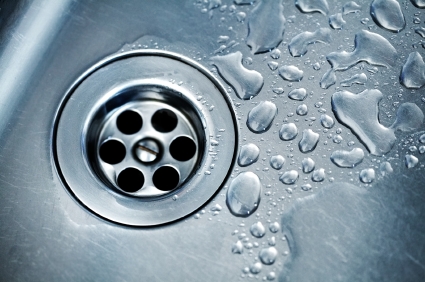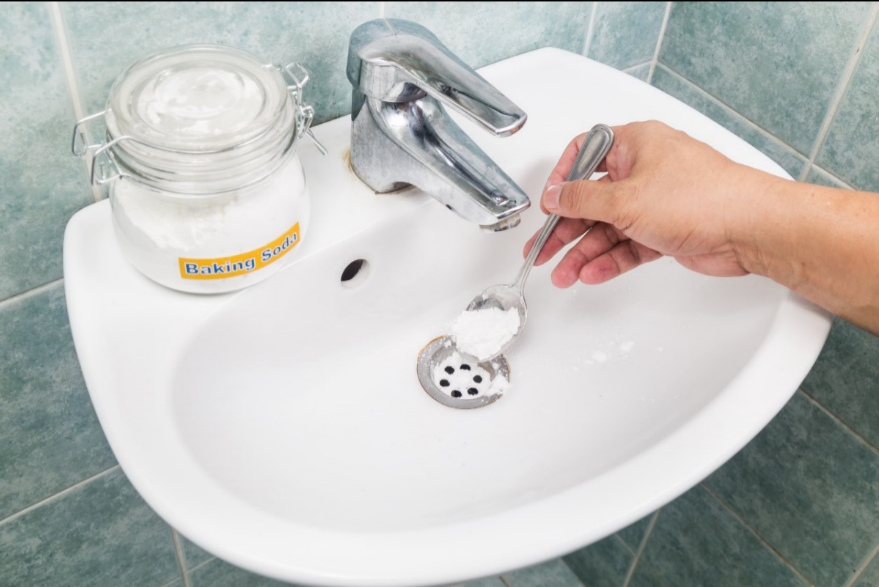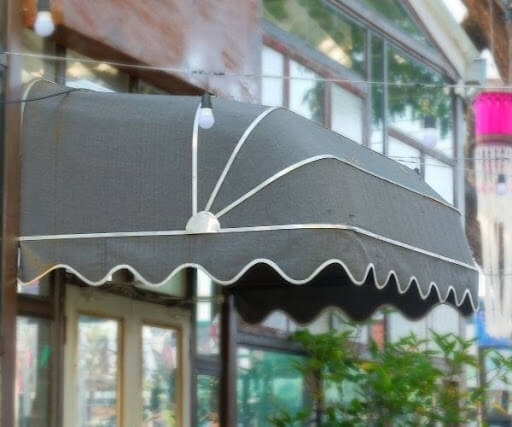
Not every blocked drain requires heavy duty drainage equipment to fix. Sometimes, a simple home remedy is all you need to get things running smoothly again.
For slow drains and minor blockages, clever use of vinegar, baking soda and hot water should do the trick. In this article, we’re looking at how to use this mixture to bring your drains back to their best.
Using baking soda and vinegar

Slow draining sinks are a common hassle. Usually, it’s the bathroom or kitchen sinks that suffer due to the build up of soap scum and other dirt and debris. When these sinks are blocked, they can really upset your routine; they’ll make washing dishes even more of a slog and freshening up turns into a frustration.
How can you sort this issue out? Simple, just make sure you’ve got baking soda, vinegar and hot water to hand.
How much of each do you need?
We recommend:
- Half a cup of baking soda
- Half a cup of vinegar
These shouldn’t be mixed into one cup, but should be applied to the drain in a certain order. Here’s the method that we suggest that you follow:
- Pour a small pot of boiling water down the drain
- Add your half a cup of baking soda to the drain
- Wait for a couple of minutes
- Now pour in your half cup of vinegar mixed with half a cup of hot water
- If you can, cover the drain while the bubbly reaction takes place – not essential, but helpful
- Let the mixture do its work for around 5 minutes – 10 minutes to be safe
- Pour another small pot of boiling water down the drain to flush the mixture and clear away the bulk of the grime
- Rinse the drain with the hot tap for a minute or so. This should get rid of any lingering grime that was loosened from the reaction
Why is this effective?
Simply put, the reaction between the hot water, baking soda and vinegar work to loosen and disperse hardened grime making it much easier for water to drain away. Adding the ingredients in stages allows each one to do their part in full, making the process as effective as possible. The very minor ‘explosion’ will eat away at stodgy gunge, so when you rinse the drain with water all the stubborn dirt should be taken down the drain without protest.
Drain maintenance
This approach isn’t just a good solution for when a drain is underperforming, it’s also a great drainage maintenance technique. The best way to deal with drainage problems is to prevent them from happening in the first place, so using the baking soda/vinegar technique a couple of times a month should help keep drains dirt-free.
This should eliminate the bulk cases of minor blockages in your oft-used drains, so if your sinks do stop working in the future you’ll know something more serious has happened.
When to call in the professionals
Sometimes you won’t be able to avoid major blockages. If you’ve cleaned your drains out but notice that the blockage just keeps returning after a short while, then it’s likely an issue further along your drainage system.
Minor blockages can be annoying, but major blockages – or even drainpipe damage – can be a nightmare to live with. If you suspect something serious has happened somewhere in your drains, it’s wise to call in professional drain inspectors.
Drainage engineers will be able to locate any issue within your drainage system. Once they’ve surveyed your pipes, they can then employ the most appropriate repair and restorative techniques to fully fix, unclog or clean your drains.




 POSTED BY
POSTED BY 

